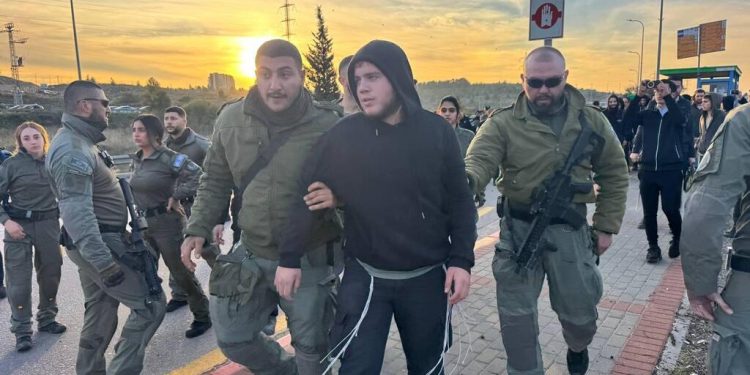Police and border police prepared outside Ofer Prison, where prisoners, gathered from various detention centers, will be released via the Bitunya checkpoint. Dozens of protesters opposed to the releases tried to rush to the prison grounds, but were blocked by police. One person was arrested during the ensuing clashes, authorities confirmed.
6 View the gallery


Security forces protest release of Palestinian prisoners
(Photo: Liran Tamari)
The Israel Prison Service (IPS) hung a sign at the prison entrance expressing a vow of retaliation against the released prisoners, saying: “The eternal nation does not forget. I will pursue my enemies and overtake them! The message was displayed in Hebrew and Arabic. Twelve of the released prisoners are expected to be released to East Jerusalem.
Members of the Nachshon Unit, the IPS’ main prisoner transport unit, are responsible for transferring prisoners to the prison’s central reception point. In total, around 1,500 IPS officers took part in the operation.
Upon arrival, the prisoners will be identified by representatives of the International Committee of the Red Cross and detained until the return of the Israeli hostages. Prisoners will only be transported by the Red Cross from Ofer Prison to their release points after receiving confirmation from the authorities.
According to the framework approved by the government, 30 Palestinian prisoners (minors or women) must be released in exchange for a living hostage or kidnapped children under the age of 19 (excluding soldiers).
The Israeli army plans to reinforce key roads before the return of prisoners to the West Bank and will act decisively against any attempts by released prisoners to reestablish terrorist networks.
“We will identify any attempted assembly and take action against any suspected terrorist activity. Take off the gloves. We operate from the air and on the ground. There is a change in the way we think about the area,” a security source said.
At the same time, the Palestinian security apparatus has expressed serious concerns about the release of prisoners and the potential strengthening of Hamas in the West Bank. They are considering allowing limited celebrations – allowing festivities in homes or villages but preventing armed parades in the streets and the display of Hamas and Palestinian Islamic Jihad flags.


